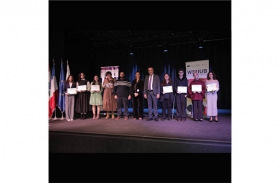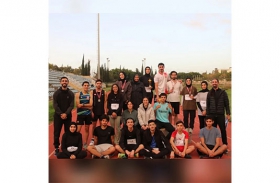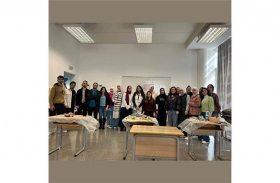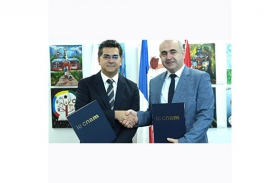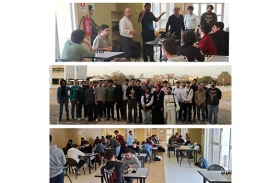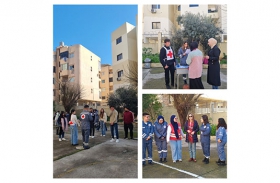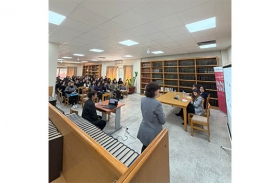
FLHS organizes conference on challenges facing literature and humanities in the digital age
The Faculty of Letters & Human Sciences organized a conference entitled “Literature & Humanities: Status and Role", under the patronage and in the presence of President Bassam Badran, and under the supervision of the Dean of the Faculty, Dr. Soha El Samad, with the participation of researchers and education experts from faculties and institutes at the Lebanese University, the Educational Center for Research & Development, the General Secretariat of Catholic Schools, Saint Joseph University, Beirut Arab University, and the Lebanese University of Science & Technology.
The conference discussed the promotion of the humanities and the new roles they are expected to play in the age of artificial intelligence.
The conference was presented by the coordinator of the Language Coordination Office, Dr. Maha Jarjour, who pointed out in her speech that the FLHS seeks to contribute to building a cohesive society capable of facing challenges, including technological developments and artificial intelligence.
Dr. Jarjour pointed out that this requires concerted efforts in terms of curriculum development, teaching methods, the production of educational resources, scientific research topics, the enactment of legislation, and the establishment of the necessary legal controls and standards in order to preserve intellectual security and mental health from the dangers of plagiarism, deep fakes, and other such threats.
Dean El Samad delivered a speech in which she pointed out that the new digital reality and the complex problems it has created call for us to rethink solutions or working mechanisms at the national level.
President Badran emphasized that with the digital age changing the pace of our lives and reshaping the way we think and communicate, the humanities seem to be at a crossroads. Some consider them a field in decline, while others see them as a lifeline that restores humanity's place amid the data overload.
He pointed out that this conference is not merely a gathering of academic researchers, but rather a call for reflection and accountability.
The conference concluded with a set of recommendations, including organizing workshops to develop legislation and policies to regulate the use of AI, sponsored by the relevant ministries, ensuring their implementation, establishing independent regulatory bodies comprising experts in education, technology, and law, and developing policies to integrate AI into secondary and university education, among other recommendations.
 LU Services
LU Services
 League of Retired Professors
League of Retired Professors
 News
News
 Vacancies
Vacancies
 International Relations
International Relations
 Contact Us
Contact Us
 Email
Email









